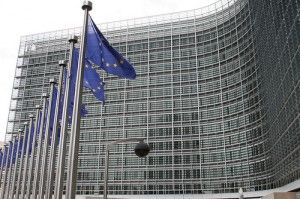 Alle prese con una crisi che minaccia addirittura l’esistenza dell’euro, l’Unione Europea si appresta a prendere decisioni che avranno pesanti conseguenze per il suo futuro e per quello della sua economia. Le proposte attualmente avanzate nel « pacchetto di governo economico » rappresentano, secondo noi, una minaccia senza precedenti per i valori ed i principi fondamentali del nostro comune destino : solidarietà, giustizia sociale, eguaglianza di opportunità e sviluppo sostenibile. In nome della necessaria responsabilità di bilancio, queste scelte ideologiche mettono in pericolo la coesione sociale fra europei e la nostra comune capacità di assicurare la transizione ecologica delle nostre economie. In particolare, si rischia di sacrificare un’intera generazione di giovani in un gran numero di paesi, giovani già colpiti fortemente dalla disoccupazione, che si sentono sempre più esclusi e respinti invece di poter partecipare pienamente alla costruzione del loro futuro.
Alle prese con una crisi che minaccia addirittura l’esistenza dell’euro, l’Unione Europea si appresta a prendere decisioni che avranno pesanti conseguenze per il suo futuro e per quello della sua economia. Le proposte attualmente avanzate nel « pacchetto di governo economico » rappresentano, secondo noi, una minaccia senza precedenti per i valori ed i principi fondamentali del nostro comune destino : solidarietà, giustizia sociale, eguaglianza di opportunità e sviluppo sostenibile. In nome della necessaria responsabilità di bilancio, queste scelte ideologiche mettono in pericolo la coesione sociale fra europei e la nostra comune capacità di assicurare la transizione ecologica delle nostre economie. In particolare, si rischia di sacrificare un’intera generazione di giovani in un gran numero di paesi, giovani già colpiti fortemente dalla disoccupazione, che si sentono sempre più esclusi e respinti invece di poter partecipare pienamente alla costruzione del loro futuro.
E’ ovvio per noi che assicurare la sostenibilità delle finanze pubbliche è un obiettivo politico essenziale : esse sono uno strumento chiave al servizio di beni comuni quali la coesione sociale o la protezione dell’ambiente. Ed è vero che la crisi che stiamo vivendo ha significativamente deteriorato le finanze pubbliche in Europa. Ma, pur avendo il settore pubblico la sua parte di responsabilità, le cause della crisi sono prima di tutto da ricercarsi nel settore privato: aumento delle disparità salariali, eccessivo indebitamento, e « bolle » speculative generate da una finanza irresponsabile.
Le misure annunciate non rispondono a queste difficoltà. Al contrario, sono ingiuste, inefficaci ed inappropriate. Privandoci di un futuro comune, ci riportebbero ad un passato che pensavamo sepolto per sempre – quello di esacerbati egoismi nazionali, di enormi ingiustizie sociali, e di estremismi di ogni sorta. Qui si rischia di trasformare la crisi economica attuale in crisi politica.
Gli Europei debbono svegliarsi finchè sono ancora in tempo, rinnovando la loro adesione ai valori dei Padri fondatori nella prospettiva di un futuro comune e condiviso. Le nostre società non sopravviveranno ad anni di declino economico e sociale, generati da una cieca austerita. Secondo tale logica, saranno principalmente i lavoratori a dover sopportare il peso della crisi attraverso riduzioni salariali. Tiriamo invece, e collettivamente, le vere lezioni dalla crisi che ci ha colpito. Gli speculatori di ogni specie si sono nutriti dell’assenza di regole e di appropriati meccanismi di sorveglianza. Imporre ai governi europei una cura brutale di austerità e colpire i salari non farà che peggiorare tali fragilità anziche porvi rimedio. In più, il rafforzamento del sistema di sanzioni su tali basi non farà che alimentare l’ostilità fra paesi. La zona euro deve difendere la sua moneta comune e sostenere imperativamente i suoi membri in difficoltà, perchè ciò è vitale per l’Europa nel suo insieme.
Occorre che le maggioranze conservatrici al Consiglio dei Ministri e nel Parlamento europeo che vogliono imporre tali inaccettabili misure prendano una volta per tutte coscienza dell’errore che stanno per commettere. In questi momenti difficili, bisogna al contrario far prova di audacia e di immaginazione, formulando una nuova, diversa risposta politica. E’ possibile risanare la finanze pubbliche senza annientare lo sviluppo economico e gli investimenti in materia di istruzione, ricerca, energie rinnovabili, e senza alimentare l’ingiustizia sociale e l’esclusione. E’ possibile ritrovare margini di bilancio essendo coraggiosi ed innovatori. Per farlo, occorre innanzi tutto che tutti gli Stati membri contribuiscano a questo sforzo insieme – sia quelli in surplus che quelli in deficit commerciale. In tutti i Paesi, bisogna poi proteggere gli investimenti pubblici produttivi dall’austerità finanziaria, e raccogliere sotto forma di Euro obbligazioni una parte del debito pubblico degli Stati membri per ridurne il costo globale, e creare le basi di una politica fiscale europea comune, garante di entrate giuste, efficaci e sostenibili. Occorre diminuire il carico fiscale sui redditi da lavoro ed aumentare quello sui redditi da capitale, combattere l’evasione fiscale, creare una vera fiscalità ecologica e introdurre una tassa sulle transazioni finanziarie. I governi europei debbono vegliare affinchè i salari più elevati e i redditi da capitale contribuiscano equamente allo sforzo generale di risanamento, per evitare che siano i salari e redditi medio bassi a pagare per tutti.
Noi non auspichiamo soluzioni semplicistiche o irresponsabili, vogliamo un progetto di modernizzazione economica grazie a politiche responsabili, equilibrate, intelligenti e pienamente rispettose dei valori sui quali poggia il progetto europeo. Chiamiamo a raccolta tutti quelli che condividono le nostre convinzioni, affinchè firmino questo appello, per dare all’Europa un’altra politica di uscita dalla crisi, che rafforzi l’Europa stessa, invece di continuare ad indebolirla.
6 giugno 2011
La lista dei primi firmatari include :
Martin Schulz (President of the European Parliament)
Rebecca Harms (Co-President of the Greens/EFA Group in the European Parliament)
Daniel Cohn-Bendit (Co-President of the Greens/EFA Group in the European Parliament)
Poul Nyrup Rasmussen (President of the Party of European Socialists, former Prime Minister of Denmark)
Philippe Lamberts (Co-chair of the European Green Party)
Monica Frassoni (Co-chair of the European Green Party)
Jacques Delors (former President of the European Commission )
Bernadette Ségol (General Secretary of the European Trade Union Confederation)
Sigmar Gabriel (Leader of the SPD, Germany)
Martine Aubry (Leader of French Socialist Party)
Claudia Roth (Bundesvorsitzende Bündnis 90/Die Grünen, Germany)
Pierluigi Bersani (General Secretary of Partito Democratico, Italy)
Elio Di Rupo (President of Belgian Socialist Party)
Cécile Duflot (National Secretary, Europe écologie/les verts, France)
Caroline Gennez (President of sp.a, Belgium)
Sarah Turine (Co-Chair, Belgian Green Party Ecolo)
Wouter Van Besien (Chair, Belgian Green Party (Groen)
Massimo D’Alema (President of the FEPS and Former Italian Prime Minister)
Jürgen Trittin (Group leader of the Greens in the German Bundestag)
Mário Soares (former President and former Prime Minister of Portugal)
Stephen Hughes (Vice-chair of the Progressive Alliance of Socialists and Democrats in the European Parliament)
Rovana Plumb (Vice-chair of the Progressive Alliance of Socialists and Democrats in the European Parliament)
Udo Bullmann (Coordinator of Socialists and Democrats, Economic committee, European Parliament)
Sven Giegold (Coordinator of Greens, Economic committee, European Parliament)
Jürgen Klute (Coordinator of GUE, Economic committee, European Parliament)
Elisa Ferreira (Member of the European Parliament, S&D Group, Portugal)
Liem Hoang Ngoc (Member of the European Parliament, S&D Group, France)
Edward Scicluna (Member of the European Parliament, S&D Group, Malta)
Claus Matecki (Member of the Executive Board, DGB Germany)
Prof. Klaus Staeck (Graphist and lawyer, Germany)
Dr. Gustav Horn (Scientific Director, Macroeconomic Policy Institute, Hans-Böckler Foundation, Germany)
Albrecht Müller (Editor nachdenkseiten.de)
Nichi Vendola (President of Apulia Region and President of “Sinistra Ecologia e Libertà”)
Josep Borrell Fontelles (President of the European University Institute, Italy)
For a European Socialist Alternative
THE MANIFESTO
FOR A EUROPEAN SOCIALIST ALTERNATIVE
Europeans can now see for themselves the consequences of the right being in power in nearly all member states and calling the shots in Brussels. The right’s handling of the sovereign debt crisis over the last two years has been a sorry saga of political mismanagement and economic illiteracy. Europe’s citizens will now pay the price for the conservatives imposing failed economic nostrums from the 1920s with unemployment levels from the 1930s. The blueprint they are putting forward is for a European Austerity Union which will lower living standards for nearly everybody, will sharpen inequalities, chip away at the foundations of the welfare state- which is Europe’s distinctive contribution to the development of mankind- and slowly cede political arbitration to unelected authorities, all in a possibly vain attempt to appease the market.
We, the undersigned are long-time members of Socialist, social democratic and Labour parties who believe that Europe’s citizens deserve better than the dismal prospects which the ruling conservatives hold out and the dire results they have achieved. But that the renewal of the democratic left in Europe can only be achieved through a wide and vigorous democratic debate implicating not only office-holders in our parties but all our members and the wider public. To that end we put forward below some progressive ideas for socialist reform which could form the basis for a new appeal to Europe’s citizens.
History has accelerated in the last few years. Europe’s socialists are being left behind. Many incapable of articulating public anger with ‘high’ finance, unwilling to work with fellow socialists in government in other EU member states, often supine in international forums on trade and climate change, with some notable exceptions democratic socialist, social democratic and Labour parties in many countries have seen their support plummet to an all-time low.
To make matters worse, the discontent generated by the policies of today’s EU and its governments has been exploited politically, not by the Left, but by xenophobic populists, nationalists and the far right.
This crisis should be liberating the Left to castigate with vigour the failure of the right to manage the crisis and to give Europe any sense of direction. But this will only be credible if the Left is able to provide a coherent set of alternative proposals to respond the crisis.
To be credible the Left needs a clear narrative for the current crisis, a set of simple and shared principles for future action and a programme which goes to the heart of the crisis.
The analysis is straightforward. Europe’s economies like all others have been knocked off course by the near-criminal irresponsibility of the global financial sector. But Europe was already facing long-term decline. Part of this is a long overdue rebalancing of the shares of global wealth between the West and the emerging economies of East and South. But in the process, we have allowed globalisation to increase the imbalances in the shares of wealth within all countries. Never once questioning the rules of the game, we have permitted it to penalise all countries with developed welfare systems, driving down living standards, increasing inequalities, boosting the share of national income going to corporate profits at the expense of wages in advanced social market economies. Poverty is growing again. This was already happening in Europe, and is now accelerating. Europe’s voice in international forums like the G20, world trade negotiating rounds and climate change conferences is often faltering to the point of being inaudible because of internal divisions, and a lack of an alternative, clear strategy.
The principles of socialist action in Europe should also be clear. Collective action in Europe is quite simply indispensable. Anybody who believes that we can protect living standards and maintain welfare services by retreating to the model of eighteenth century nation states, by repatriating powers from Brussels to national capitals, by undermining community institutions is, unwittingly or not, promoting the subservience of our countries to superpowers, past and future, and to the dictatorship of the market. Europe’s response to the crisis has been vacillating and insufficient, but national solutions even if vigorously pursued would be irrelevant in the globalised world we live in now.
A socialist response to the crisis must therefore be European, not simply a ‘more Europe’ mantra but specifically to give Europe the means to protect the interests and well-being of European citizens. It has to be assertive to ensure that Europe’s independent voice is united, loud and clear in the G20, in the Doha round, in Climate Change negotiations and in the United Nations. The European Union now has its own voice in the UN System: it needs to show the courage and the will to use it to further our objective interests and values, making common cause with all governments and regional organisations across the world who share them.
Its economic approach should be coherent and based on three elements; shared responsibility, growth and equality.
There is nothing socialist about wasteful public spending and the accumulation of debt. Because we believe in public expenditure we have a duty to ensure that its use is efficient. Extravagant projects, the inflated style of life of some public institutions, the duplication inherent to the multiplicity of national and European programmes which have taken on a life of their own without any regard to efficacy should be pruned or eliminated. But rigorous budgeting has to be achieved by balancing public spending restraint with fair taxation, based on the ‘ability to pay’ principle, with the corporate sector paying its share of the burden, and an all-out assault on tax avoidance and evasion so widespread throughout the Union, abandoning tax breaks for the top earners, eliminating the ‘bonus bonanza’ in the financial sector through specific punitive taxes, and tackling vigorously the tax havens.
Rigour without growth will condemn Europeans to a lost decade of decline and depression. Growth requires national and European action with the EU’s budget and financial instruments being exploited when they have catalytic value.
The Left in power at EU level made progress in tackling discrimination of many kinds. Defending and extending equalities- and stamping out discrimination of any kind in any part of the Union- must be at the heart of a European socialist programme. But economic equality is a concept which has almost disappeared from the socialist lexicon in the last decades even though it is central to any notion of social justice. It is now essential to Europe’s recovery. If citizens believe that the burdens of the crisis are falling on them unfairly; if they are facing real cuts in pay and witnessing a return to levels of poverty not seen since the 1980s as social protection and funding for state programmes is cut while the scandals of the bonus culture and the mushrooming of corporate pay and the vulgar displays of ostentatious expenditure by the super-rich continue unabated, any collective effort to redress our economic decline will be undermined, economic efficiency will be jeopardised and faith in democracy sapped.
On the basis of this common approach, and the reassertion of our traditional socialist convictions, the Left should now develop a common platform for the future. This should have the following ten components;
-1) An economic policy for the Union which places the economic and social objectives laid down in the Treaty (growth, full employment, social inclusion) at the heart of policy-making with just as much vigour and organisational firepower as that accorded to the objective of budgetary discipline; complemented by an updating of the Union’s social objectives, an urgency in the drive to eradicate poverty and strengthening social dialogue; to this aim, a set of fundamental social rights and goals should be firmly anchored in the Treaty, with the same firm monitoring and enforcement tools for these social rights as exist for economic freedoms.
-2)Sustainability for the single currency; the ECB mandate to be developed in recognising its right to buy government bonds when the currency is under attack, with effective shared responsibility for economic governance; if the European Central Bank is not allowed to take action to save the currency it is supposed to manage, what is it for?
-3) Budget reform; increases in the EU Budget primarily to promote cutting edge technologies, to finance social, infrastructure and sustainable development investment; the Budget to work in harness with the EIB;
-4) Revenue reform; EU own resources to be supplemented by energy taxes; Member states to be given more leeway to reduce VAT to stimulate domestic consumption and shift away from regressive taxes;
-5) A financial transactions tax to stimulate employment incentives in manufacturing and in services for SMEs; to boost research and development; and to finance global public goals, such as combating climate change and promoting development.
-6) European investment through Project Bonds issued by the Union, and backed by the ECB concentrating on realising the huge potential of the new green economy; new infrastructure plans to be ‘fast-tracked’ with more flexible planning rules to create jobs rapidly, and reduce excessive dependence on fossil fuels and nuclear energy, together with an Energy Community with guaranteed mutual support in case of threats to energy supplies from third countries;
-7) A fairer basis for international trade; EU negotiators to be given a new mandate to fight social and environmental dumping; levies on imports from third countries not meeting EU environmental standards;
-8) Stronger support for our neighbours, to address the unacceptable and unsustainable inequality between the EU and its southern and eastern neighbours, through real concessions in trade and mobility, and by rewarding those who have fought so courageously for their democratic freedom in the Arab World. Europe must never again be seen to be quiescent in propping up authoritarian, nepotistic, geriatric dictatorships in the name of some misguided realpolitik;
-9) A more robust and united presence on the international stage, using our collective political and economic power to promote our values and interests beyond our borders, not least by playing our part in bringing to an end the conflict in the Middle East;
-10) Strengthening European democracy; whatever new rules for economic governance be introduced, parliamentary accountability must be paramount; member states to respect fully the Treaty on nominating the Commission President according to the EP election result; parliamentary votes on individual Commissioners and on possible recall to be binding; Socialist parties to involve members and supporters in all aspects of EU policy decisions, the manifesto, and candidates for top EU offices; Europe-wide action to strengthen press freedom by busting media monopolies and limiting non-European press ownership
The long-term viability of the European integration is now at stake. This is much more than just propping up the currency. Only a new approach from democratic socialists, reasserting forcefully our values and having the courage to propose European solutions can infuse the European project with the energy to sustain what should be its hallmarks- solidarity, economic efficiency and democratic vitality.
First signatories:
Panagiotis Beglitis, Member of the Greek Parliament (PASOK, Greece);
Josep Borrell Fontelles, President of the European University Institute, Former President of the European Parliament (PSC/PSOE, Spain);
Victor Bostinaru, Member of the European Parliament (PSD, Romania);
Udo Bullmann, Member of the European Parliament (SPD, Germany);
Sergio Cofferati, Member of the European Parliament (PD, Italy);
Véronique de Keyser, Member of the European Parliament (PS, Belgium);
Proinsias de Rossa, former Social Affairs Minister (Labour, Ireland);
Harlem Désir, Member of the European Parliament, national secretary of the PS (PS, France);
Leonardo Domenici, Member of the European Parliament (PD, Italy);
Glyn Ford, former Member of the European Parliament (Labour, United Kingdom);
Evelyne Gebhardt, Member of the European Parliament (SPD, Germany);
Ana Gomes, Member of the European Parliament (PS, Portugal);
Enrique Guerrero Salom, Member of the European Parliament (PSOE, Spain);
Elisabeth Guigou, Member of the French Parliament (PS, France);
Zita Gurmai, Member of the European Parliament, President of PES Women (MSZP, Hungary);
Jo Leinen, Member of the European Parliament (SPD, Germany);
David Martin, Member of the European Parliament (Labour, United Kingdom);
Marianne Mikko, Member of the Estonian Parliament (SDE, Estonia);
John Monks, Member of the House of Lords, former Secretary General of ETUC (Labour, United Kingdom);
Leire Pajin Iraola, Member of the Spanish Congress (PSOE, Spain);
Gianni Pittella, Vice-President of the European Parliament (PD, Italy);
Sir Julian Priestley, former Secretary General of the European Parliament (Labour, United Kingdom);
Libor Roucek, Member of the European Parliament (CSSD, Czech Republic);
Hannes Swoboda, Member of the European Parliament, President of the S&D Group of the European Parliament (SPÖ, Austria);
Kathleen Van Brempt, Member of the European Parliament (SPA, Belgium);
Kristian Vigenin, Member of the European Parliament (BSP, Bulgaria);
Henri Weber, Member of the European Parliament (PS, France).














